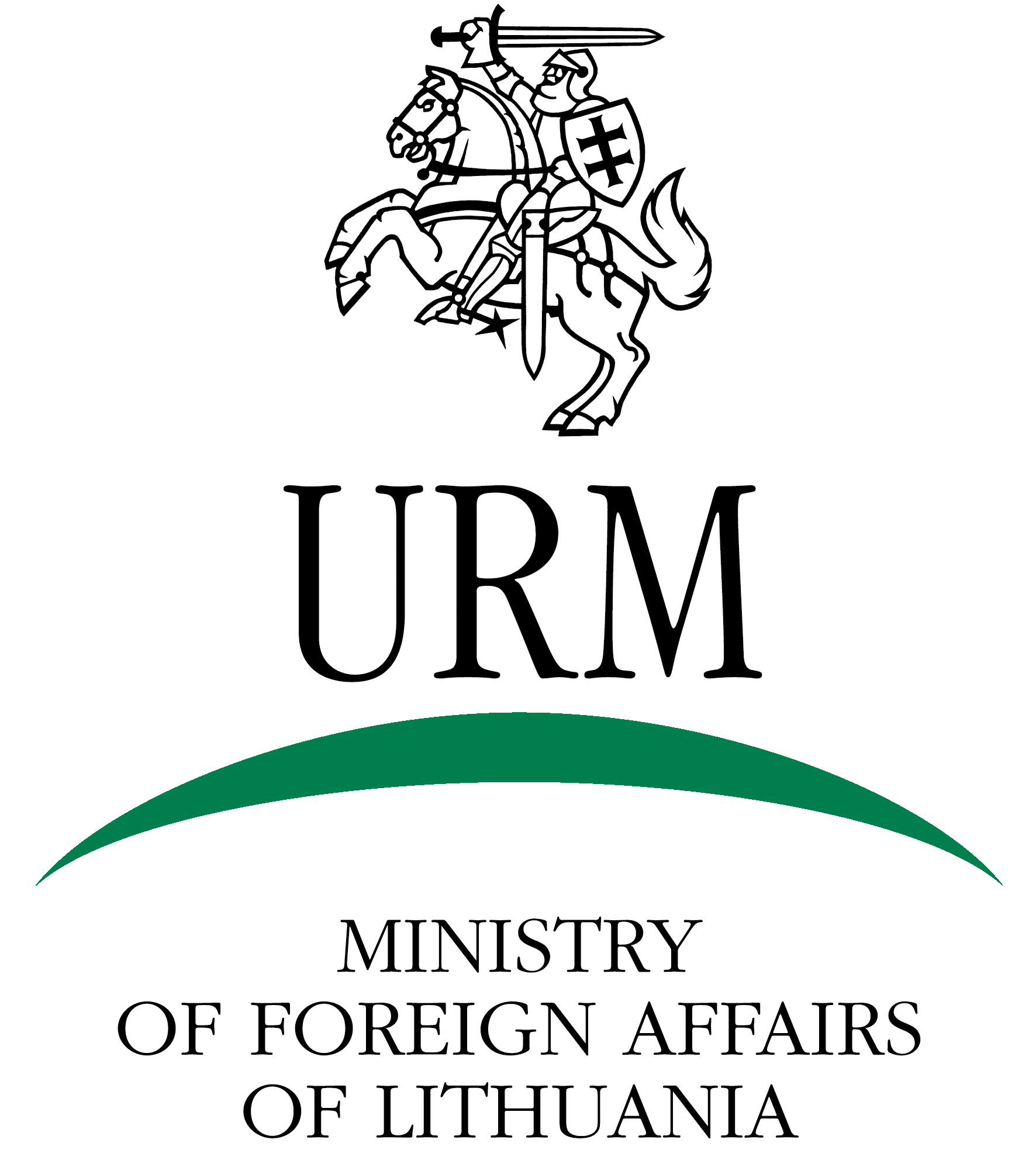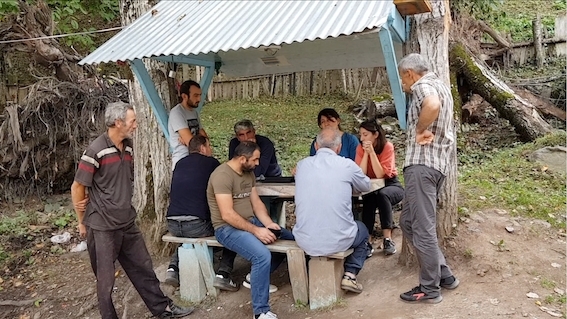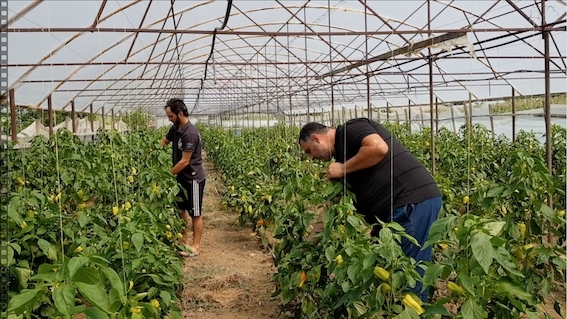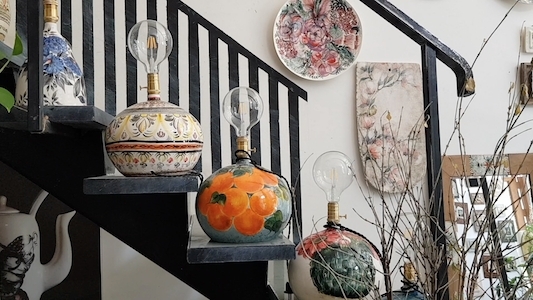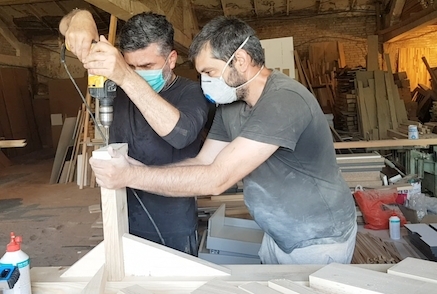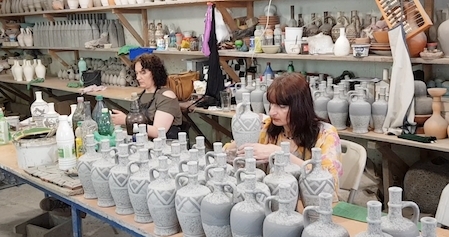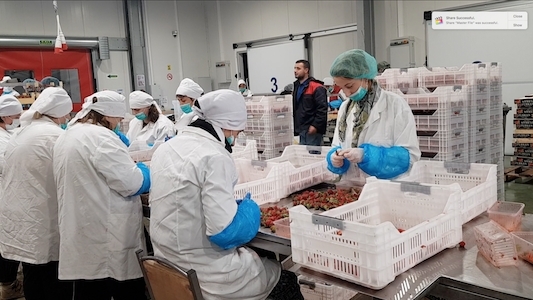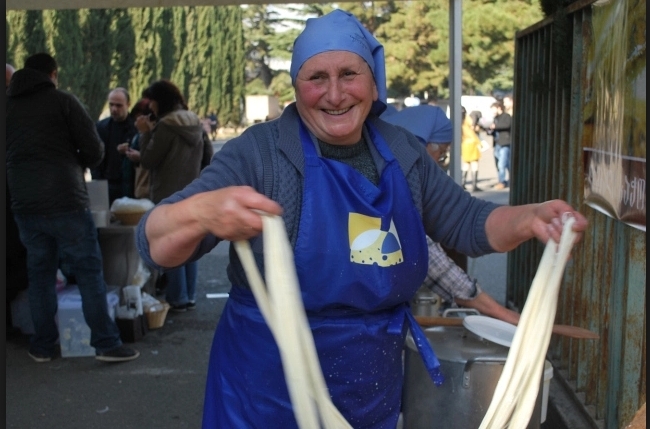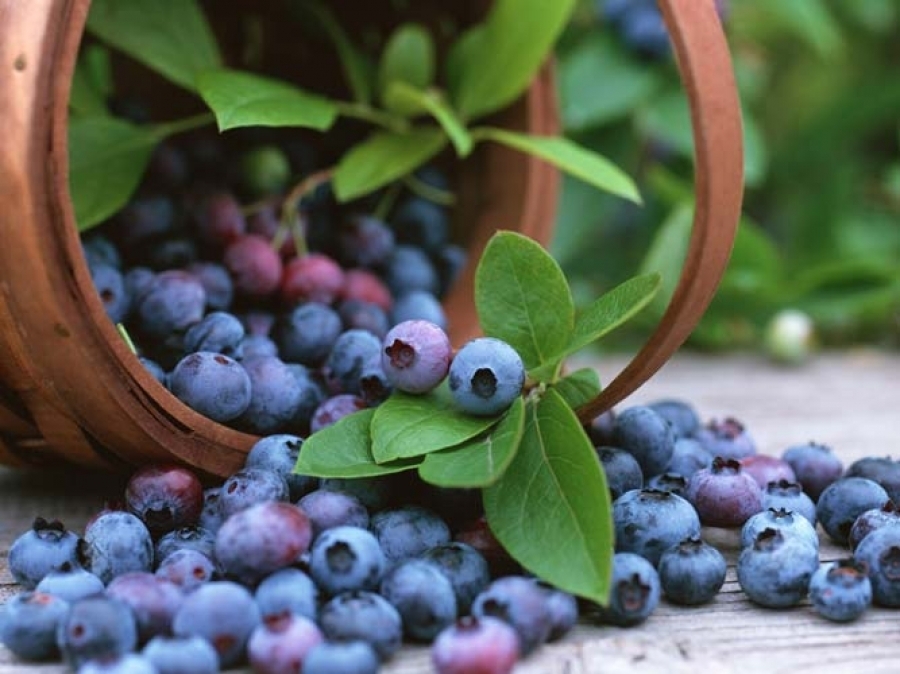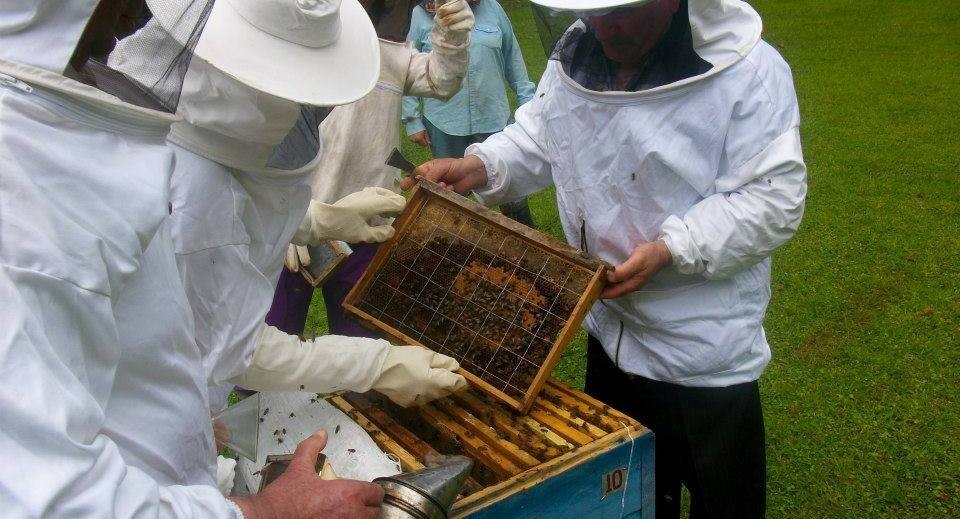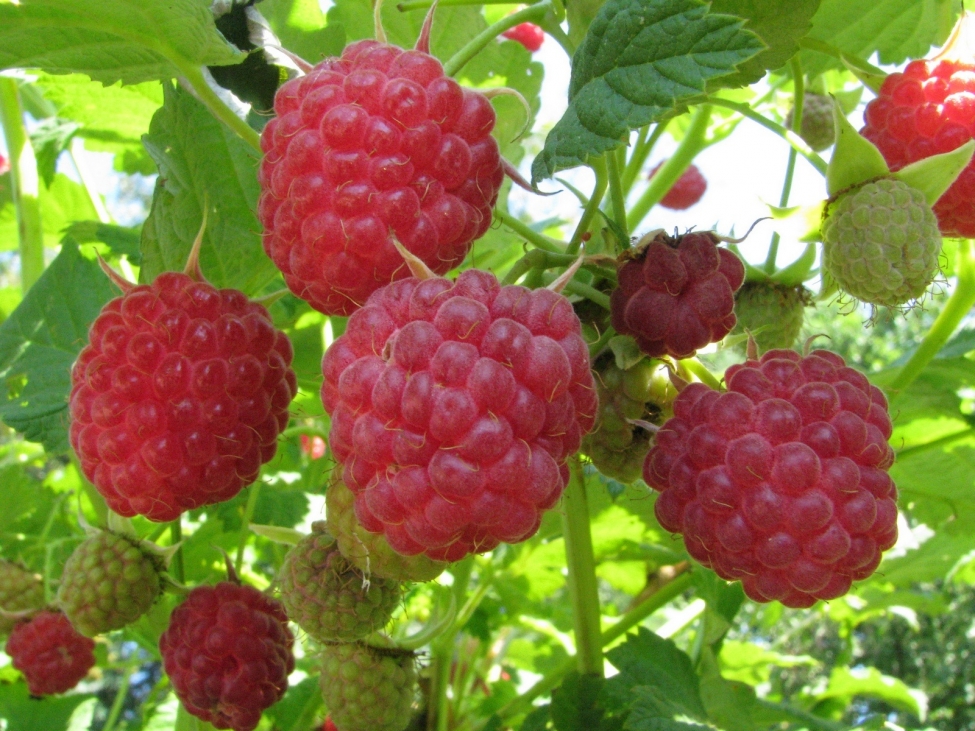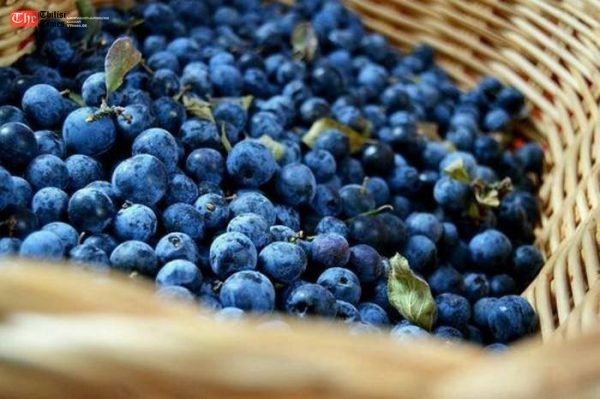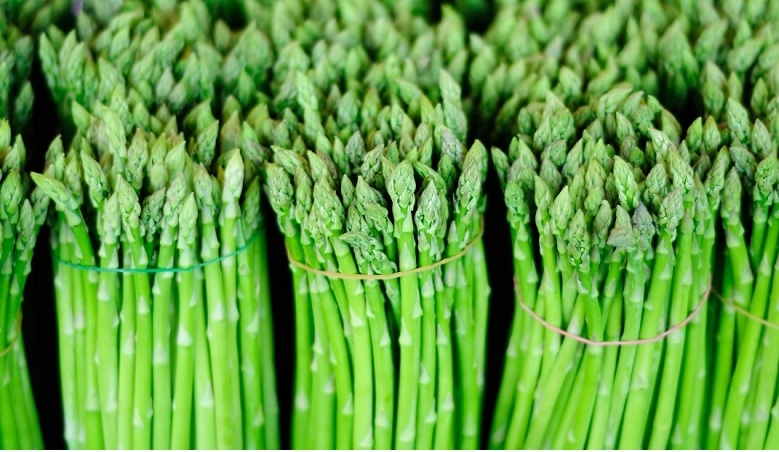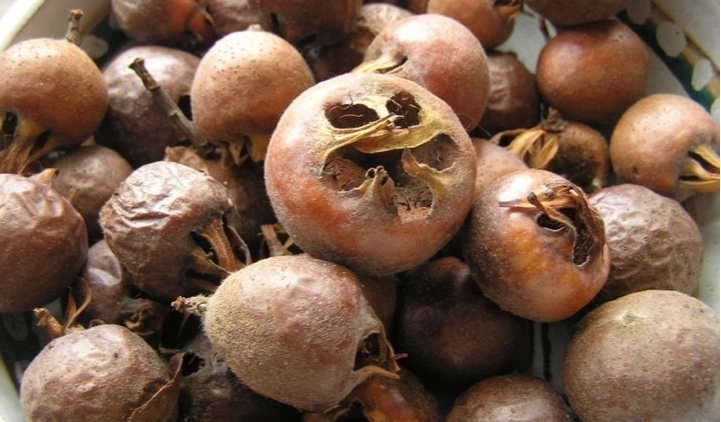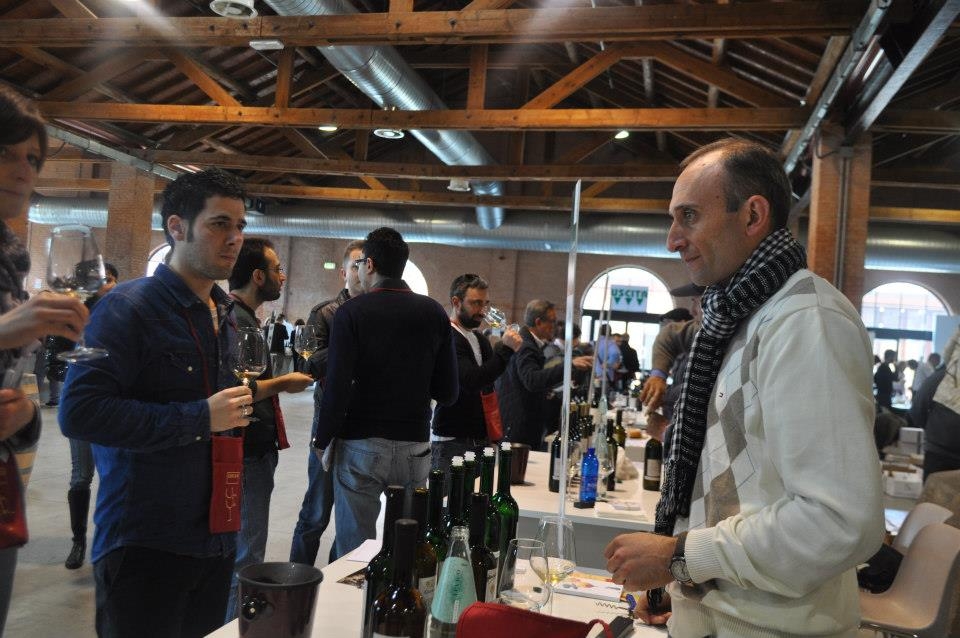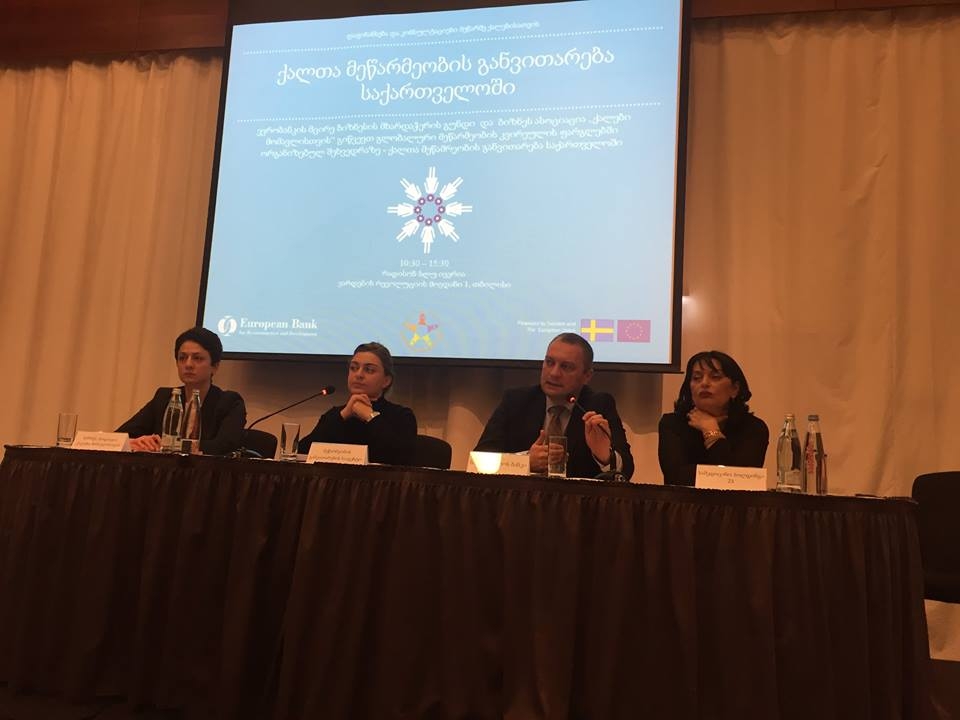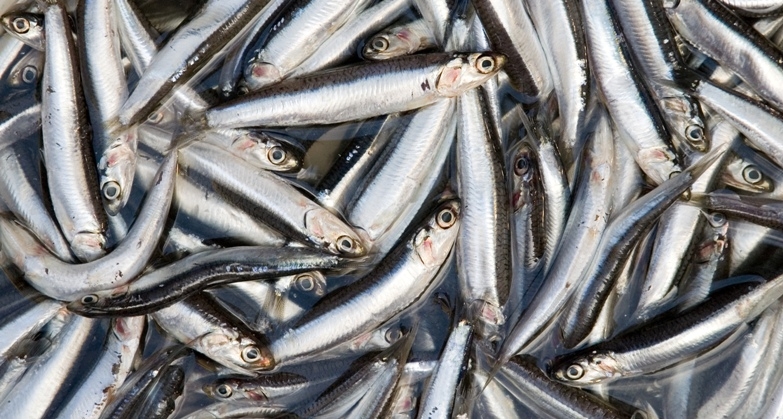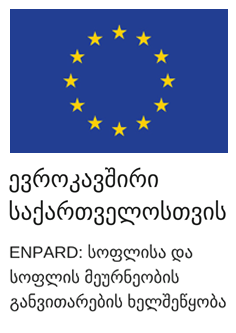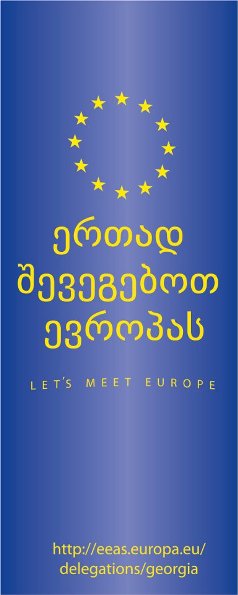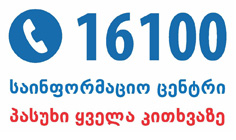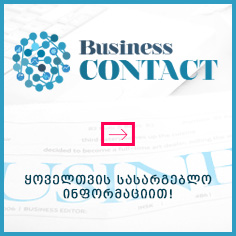Beekeepers form a cluster to collect enough amount of honey for export.

The experience of recent years has shown that foreign customers demand regular supply with large volumes wile exporting Georgian products to other countries. Anyone who has tried to sell their product abroad knows that small and fragmented exports will not bring benefits, and without unification it is almost impossible to collect sufficient quantities. There were several attempts to create unions in various sectors. For example, a lot of financial resources were spent for the formation of farmers' cooperatives, both from donors and the state budget. However, cooperation has not brought significant benefits.
Vakhtang Glonti and Irakli Iashvili came up with the idea of uniting beekeepers after their 200-kilogram batch of honey was quickly sold in Germany and customers demanded several hundred tons of their product. However, beekeepers did not have this such amount of honey. It was impossible to collect quality honey from other producers. German customers still have a demand for Georgian honey. Therefore, young beekeepers have decided to form union of like-minded farmers. They want to establish a cluster where will be beekeepers who take care of their bees in accordance with modern standards and produce a quality product.
Vakhtang Glonti collects up to 5 tons of honey per year from his family farm in Guria. Giorgi Iashvili has a beehive in Racha, Ambrolauri. He produces about 10 tons of linden honey annually. GTZ invited German experts to Georgia in order to teach young entrepreneurs how to take care for bees properly. Georgian beekeepers have worked for 2 years under the supervision of German specialists.
Vakhtang Glonti (beekeeper): “German specialists taught us how to get high quality honey that would enter the high segment market in Europe. They showed us how to replace honeycombsor “honey coupage” so-called. We used this method for getting quality honey, that's why they liked it in Germany. There is a fairly large amount of demand that we do not have at this stage. Therefore, we have decided to unite the farmers, teach them how to take care of the bees and then export the honey to Europe together.
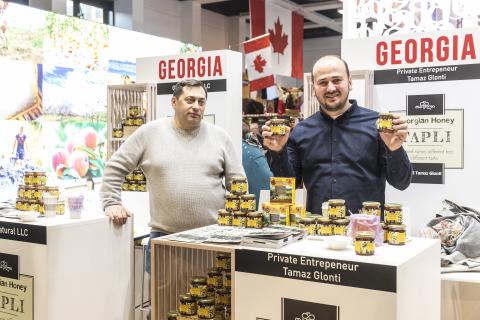
We could not help other farmers to produce uniform and high-quality honey this year. No more than 3-4 tons could be collected. So, we can only count on our own honey. Therefore, we wanted to create a cluster. The cluster formation was also offered by GTZ which unites like-minded beekeepers who meet the European standard. We are under negotiation with several beekeepers, but the cluster has not had the legal status yet. We askfrom beekeepers working with us to satisfy our requirements and to work as we say, in return we guarantee product sales.
It is not necessary to join 30 individuals into the union during the first year. It would better to add 2-3 beekeepers to the cluster time to time. They have to know that the cluster is one whole body, and everyone’s situation will be worsened if one of them deteriorates the quality. We need to teach them how to work as a team. Then they will invite others to join the cluster and we will be bigger. I do not see any other way out.
There is a huge demand for Georgian honey. They can order 100 and 200 tons. 2-3 men will not be able to produce this amount of honey, nor can 5 beekeepers unite. Collecting so much honey requires more people. In the first stage, we will unite beekeepers in the cluster, whom we know well and have already worked with.
Testing one farmer's honey in a European laboratory costs about 1,500 euros. We really do not want to waste this money. We sent some honey samples to the lab last year. Analysis have shown that not all samples were of proper quality. We have contact with these people and we are going to send their honey to Europe for testing this year as well. We hope that everything will be sorted out gradually and we will continue to work with them.
-Will you unite farmers across the country in the cluster?
- I have a farm in Guria, my partner is from Racha. There are farmers from Imereti, who want to join us. We consider inviting beekeepers from Kakheti. Also, we wantto join beekeepers from Akhaltsikhe, as there are different climatic conditions there. We can also cooperate with Svaneti and Khevsureti farmers in future. We try to collect as many different types of honey as possible. In Guria, for example, it is difficult to produce alpine honey in because we cannot relocate our beehives to Bakmaro. Alpine honey production is easier in Racha, especially in Shovi. It is possible to get totally different quality honey in Vaio fields, Samtskhe-Javakheti. We want to have a variety of choices for the customer.
- You have exported honey under the "TAPLI" brand in Germany. Will the honey from the cluster members be sold under this brand in the future as well?
- It is said that honey brandwill be handed over to us. If this happens, "TAPLI" will be a cluster brand and our honey will be exported under this name. But the identity of the manufacturer will be written on the jar. And if it is not given to us, then another brand can be created for the cluster and our products can be sold under that name. let's see what happens.
The jar we use for honey comes from Europe, China and Turkey. There are several manufacturers of glass jars in Georgia, but they need to be ordered in advance. We do not need many jars, so they cannot produce it just for us. Currently we put honey in 3-4 types of jars. In the future we are going to move to one branded jar, which will be only ours, but we have not managed to do that yet.
- Do you encounter any resistance when offering beekeepers to join the cluster?
- Many beekeepers find it difficult to get the innovations. There are fewer young people in beekeeping. Older people are a little skeptical towards the union. Until they receive a specific financial benefit, they will be distrustful of all the news. There are beekeepers who do not believe in honey export opportunities at all. Many of them have used drugs that do not come out from the wax for 4-5 years. Until they replace the frames and wax contaminated with antibiotics, and several procedures are carried out, they will not be able to produce export products. For example, metronidazole can stay in the wax for 4-5 years, such honey cannot be exported during these years.
There are beekeepers who think they should definitely work on exports. They also analyze the difficulties that my partner and I went through. It took us 2-3 years to do everything according to European standards. We have written a European model of honey coupage, which describes how to clean honey and we teach this to beekeepers. Potential members of the union are not competitors for each other. Neither other beekeepers will be our competitors, because we cannot produce enough products in Georgia to fill the domestic market and meet European demand. The more beekeepers export honey, the better. This will increase honey production in the country.
- Do you think the demand for Georgian honey will remain in Europe in the future?
- The honey market in Europe is divided into 2 main parts: 15% of the market is occupied by honey in the price segment above 4-5 USD, and 85% is low-cost honey, which enters Europe from China, Ukraine. This is a 1-1.5 dollar consumer honey. Georgian honey is of high value. The laboratory report showed that it is special. Honey produced in Georgia is often poly-floral, but the best. Demand for Georgian honey in Europe may be maintained for one year and not for another. So, we have to work on quality. For example, Ukraine imported high quality honey to Germany 4 years ago. In the second year, the documents were forged, and consumer honey was imported. The Germans checked this and blocked the way to the high segment market for the Ukrainian honey. If any unscrupulous producer from Georgia imports low-quality honey in some way, other exporters will be also barred from entering the high segment. our honey was analyzed at the German border to see if it was really of the same quality as the sample we had sent in advance.
Honey harvest depends on climatic conditions. However, the farm must be managed properly sorted. The farmer must help bees so that if the climatic conditions are not good in one place, he must relocate beehives to another place.
The nature does not allow us to produce honey in large quantities in Georgia. The bees take a specific amount of honey from a particular area. Whatever raw material base there is in the country, it will collect the appropriate amount. If plants for honey production are in the country, the yield may increase, but that is a future prospect.
Author: Nona Kvlividze
The article is prepared with the financial support of the Ministry of Foreign Affairs of Lithuania and "Development Cooperation and Democracy Promotion Programme."
